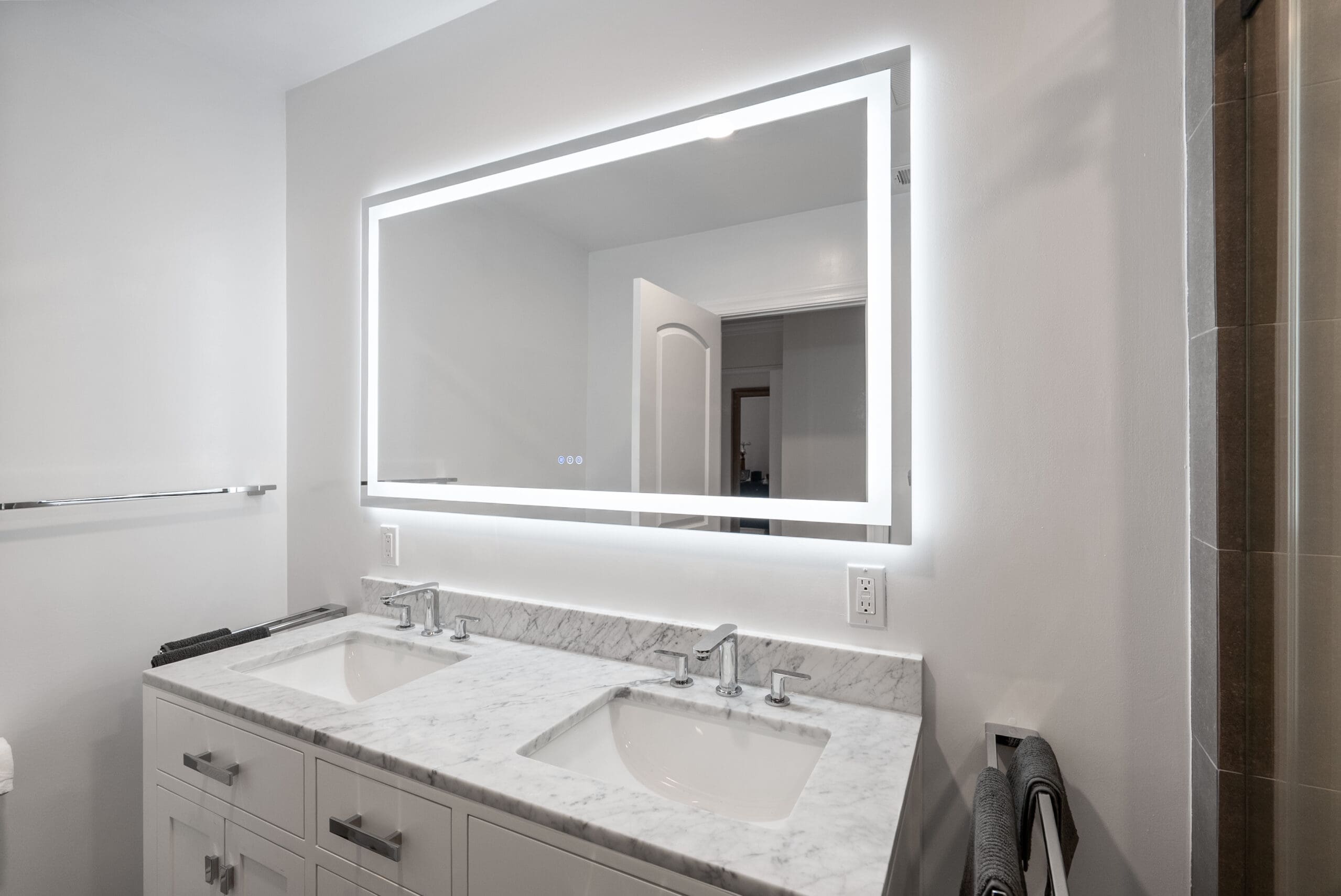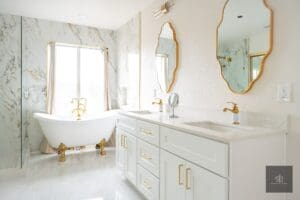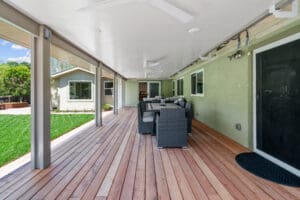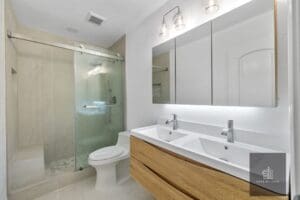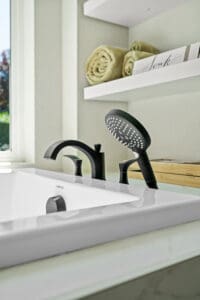Golden Bay’s Best Materials For Durable And Stylish Countertops
Hey there! So, you’re thinking about new countertops, right? Maybe you’re in the middle of a kitchen remodeling project, or perhaps you’re just daydreaming about a future home renovation. We get it. We’ve been there with countless homeowners right here in the bay area. Choosing a countertop can feel like a monumental decision—it’s a huge part of your home’s look and a serious workhorse. But honestly? It doesn’t have to be stressful. Let’s walk through this together, like friends chatting over a coffee, and break down the best materials that balance killer style with everyday durability.
Our Go-To Countertop Champions: A Material Breakdown
We see a lot of surfaces in our line of work at EA Home Builders. From quick bathroom remodeling updates to full-scale luxury home renovations, the countertop often becomes the star of the show. Here’s our real-world take on the top contenders.
The Ever-Popular Quartz: The Low-Maintenance Superstar
Let’s kick things off with the rock star of the modern remodeling company world: quartz. IMO, this is the one to beat for a lot of good reasons.
- What it is: Don’t get tricked—quartz is an engineered stone. It’s about 90% crushed natural quartz blended with resins and pigments. This man-made process is its secret weapon.
- Why we love it: It’s non-porous. That means zero sealing required and it fights off stains and bacteria like a champ. Spill some wine, olive oil, or lemon juice? No sweat. Just wipe it up.
- The Downside: While incredibly tough, it’s not a huge fan of direct, high heat. Always use a trivet. And while the patterns are stunning, they can sometimes lack the unique, wild veining of natural stone.
Quartz is a fantastic choice for busy families in Walnut Creek or Danville who want a beautiful, worry-free surface. It’s the set-it-and-forget-it of countertops, and we specify it all the time for our custom remodels.
Classic Granite: The Natural Beauty with Character
Ah, granite. The O.G. of luxury countertops. It’s a 100% natural stone, and every slab is a unique piece of art from the earth.
- What it is: It’s mined from quarries, cut into slabs, and polished to a shine. No two pieces are exactly alike, which is a huge part of its appeal.
- Why we love it: Its heat resistance is top-tier. You can plop a hot pan right on it without a second thought (though we still recommend a trivet, because why tempt fate?). The natural variation means your kitchen will be truly one-of-a-kind.
- The Downside: It requires annual sealing. It’s a porous stone, so if you forget to seal it, it can stain. It’s also a bit of a diva—some granites are harder than others, and a chip can be tricky to repair seamlessly.
For those in Oakland embracing a more organic or traditional style in their whole house remodeling, granite offers a timeless beauty that many homeowners adore.
Sleek Porcelain Slabs: The New Kid on the Block
Porcelain slabs are making a huge splash, and for good reason. This isn’t your grandmother’s floor tile; we’re talking about massive, thin, and incredibly strong slabs.
- What it is: Made from refined clay and minerals fired at extremely high temperatures, porcelain slabs are tough as nails.
- Why we love it: It’s virtually impervious to scratches, stains, heat, and UV light. Want a countertop that can also be your outdoor kitchen countertop or won’t fade in a sunny room? This is your guy. The designs, which are printed on, can mimic anything from marble to concrete with stunning realism.
- The Downside: Because it’s so hard, fabrication requires a specialist. This can sometimes impact the final price. The feel is also different—it’s less “stone-like” and more smooth and glassy.
We’re seeing more and more clients choose porcelain for its durability and design versatility, especially in modern home remodeling projects.
Butcher Block: The Warm and Welcoming Workhorse
Want to add instant warmth and a touch of rustic charm? Butcher block is your friend. It brings a cozy, inviting feel that cold stone sometimes can’t.
- What it is: It’s strips of wood (like maple, walnut, or oak) glued together to form a solid slab.
- Why we love it: It’s kind to your dishes—less clinking and breaking. You can also use it as a built-in cutting surface. The cost is also generally more budget-friendly than stone options.
- The Downside: It requires maintenance. You need to oil it regularly to protect it from water and stains. It can be scratched and is susceptible to heat damage. But hey, some people love the worn, “lived-in” patina it develops over time.
It’s a fantastic choice for a bathroom renovation contractor might use on a vanity to warm up a space, or as an island top in a kitchen to break up an all-stone look.
How Do They All Stack Up? Let’s Get Technical.
We can talk about features all day, but sometimes you just need the facts laid out. Here’s a handy table to help you compare the key specs.
| Feature | Quartz | Granite | Porcelain Slabs | Butcher Block |
|---|---|---|---|---|
| Durability | Excellent. Resists scratches & stains. | Very Good. Hard, but can chip. | Exceptional. Highly scratch & heat resistant. | Good. Can scratch and dent easily. |
| Heat Resistance | Fair. Use trivets. | Excellent. Very heat resistant. | Excellent. Highly heat resistant. | Poor. Will scorch and burn. |
| Stain Resistance | Excellent. Non-porous. | Good (when sealed). Porous. | Excellent. Non-porous. | Poor (unless sealed/oiled). Porous. |
| Maintenance | Zero. Just soap and water. | Annual Sealing required. | Zero. Just soap and water. | High. Regular oiling needed. |
| Average Cost (per sq. ft.) | $$ – $$$ | $$ – $$$ | $$$ – $$$$ | $ – $$ |
| Best For | Busy families, low-maintenance lovers. | Traditionalists, heat warriors. | Modern designs, outdoor kitchens, sunrooms. | Cozy, rustic kitchens, budget-conscious projects. |
Making Your Choice: It’s More Than Just Looks
Okay, so you’ve seen the options. How do you actually choose? Beyond the specs sheet, here are the real-world questions we ask our clients at EA Home Builders.
What’s Your Lifestyle Really Like?
Be honest with yourself. Are you a meticulous cleaner, or is your kitchen a whirlwind of activity? If you don’t want to baby your counters, quartz or porcelain is your best bet. If you love natural materials and don’t mind a little annual TLC, granite is a beautiful path. Butcher block is a commitment, but the payoff in character is huge for the right person.
What’s the Rest of Your House Saying?
Your countertop shouldn’t clash with the overall vibe of your home. A sleek porcelain slab might look out of place in a craftsman-style bungalow, just as a thick butcher block might in a ultra-minimalist loft. A good general contractor will help you see the big picture, ensuring your new countertop complements your cabinetry, flooring, and lighting.
Let’s Talk Budget (The Fun Part, Right?)
The cost is a major factor, and it’s not just the material itself. Fabrication and installation complexity play a huge role. A highly patterned stone that requires special seam-matching will be more labor-intensive. This is where working with an experienced home renovation contractor pays off. They can give you a transparent breakdown so there are no surprises. FYI, checking reviews for your nearest top contractors can give you great insight into their pricing fairness.
Your Countertop Questions, Answered
We hear these all the time. Let’s clear a few things up.
1. What is the most durable countertop for a busy kitchen?
For the ultimate combination of scratch, stain, and heat resistance with zero maintenance, porcelain slabs are currently winning the durability race. A very close second is quartz, which is our most popular recommendation for busy households seeking a balance of durability, cost, and style.
2. Can I install new countertops myself to save money?
We get it—DIY can be tempting. But IMO, this is one area where you really, really get what you pay for. Countertop installation requires precise templating, specialized tools, and a lot of muscle. A misstep can lead to cracked slabs, improper support, and damaged cabinets. It’s a job best left to the pros. A skilled home addition contractor or your closest expert countertop fabricator will ensure a flawless, safe, and long-lasting installation.
3. How long does a typical countertop installation take?
Once the material is selected and in stock, the process is relatively quick. Templating (taking precise measurements) happens first. Fabrication usually takes 1-2 weeks. The actual installation is often a one-day affair for a standard kitchen. Delays usually come from material availability, especially with unique, imported stones. A good remodeling company will manage this timeline for you and keep you in the loop.
Wrapping It Up: Your Dream Countertop Awaits
So, there you have it. From the rugged beauty of granite to the effortless cool of quartz and the futuristic strength of porcelain, you’ve got some amazing options. The best choice truly depends on how you live, the style you love, and the investment you’re comfortable making.
Remember, the best next step is to see and feel these materials for yourself. Visit a local stone yard. Tap on the slabs. See how the light hits them.
And if you’re feeling a bit overwhelmed? That’s what we’re here for. As your local expert home improvement team at EA Home Builders in Contra Costa County, we live and breathe this stuff. Whether you’re planning a simple bathroom remodeling project or a complex basement remodel, we help you navigate these choices every day. We can guide you to the perfect countertop for your home and ensure the installation is seamless.
Why not give us a call? Let’s turn your dream kitchen or bath into a reality you’ll love for years to come.

